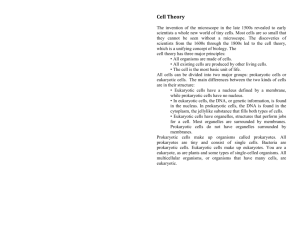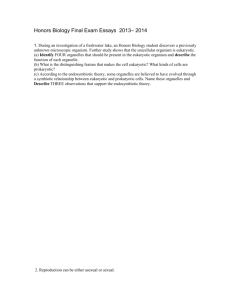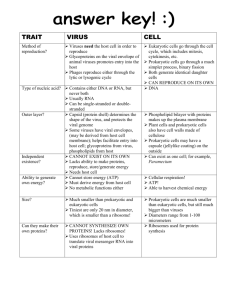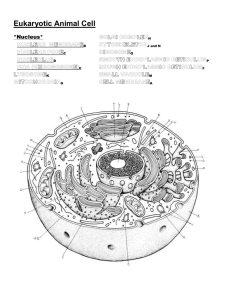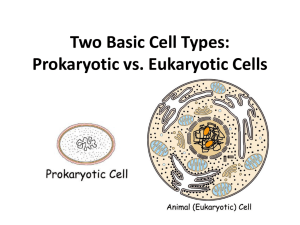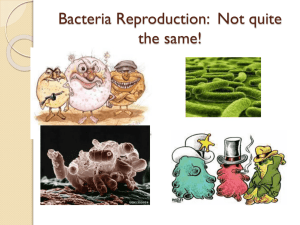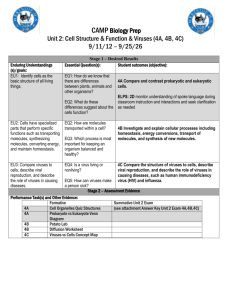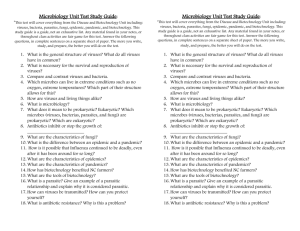ECQ 7.1 A
advertisement
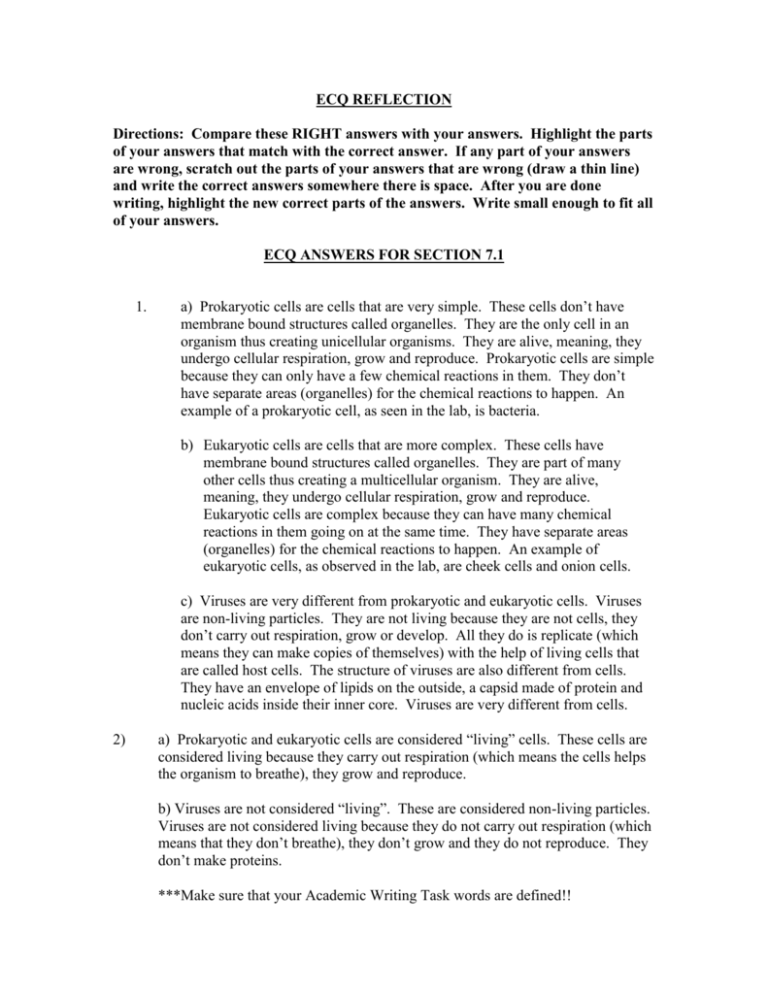
ECQ REFLECTION Directions: Compare these RIGHT answers with your answers. Highlight the parts of your answers that match with the correct answer. If any part of your answers are wrong, scratch out the parts of your answers that are wrong (draw a thin line) and write the correct answers somewhere there is space. After you are done writing, highlight the new correct parts of the answers. Write small enough to fit all of your answers. ECQ ANSWERS FOR SECTION 7.1 1. a) Prokaryotic cells are cells that are very simple. These cells don’t have membrane bound structures called organelles. They are the only cell in an organism thus creating unicellular organisms. They are alive, meaning, they undergo cellular respiration, grow and reproduce. Prokaryotic cells are simple because they can only have a few chemical reactions in them. They don’t have separate areas (organelles) for the chemical reactions to happen. An example of a prokaryotic cell, as seen in the lab, is bacteria. b) Eukaryotic cells are cells that are more complex. These cells have membrane bound structures called organelles. They are part of many other cells thus creating a multicellular organism. They are alive, meaning, they undergo cellular respiration, grow and reproduce. Eukaryotic cells are complex because they can have many chemical reactions in them going on at the same time. They have separate areas (organelles) for the chemical reactions to happen. An example of eukaryotic cells, as observed in the lab, are cheek cells and onion cells. c) Viruses are very different from prokaryotic and eukaryotic cells. Viruses are non-living particles. They are not living because they are not cells, they don’t carry out respiration, grow or develop. All they do is replicate (which means they can make copies of themselves) with the help of living cells that are called host cells. The structure of viruses are also different from cells. They have an envelope of lipids on the outside, a capsid made of protein and nucleic acids inside their inner core. Viruses are very different from cells. 2) a) Prokaryotic and eukaryotic cells are considered “living” cells. These cells are considered living because they carry out respiration (which means the cells helps the organism to breathe), they grow and reproduce. b) Viruses are not considered “living”. These are considered non-living particles. Viruses are not considered living because they do not carry out respiration (which means that they don’t breathe), they don’t grow and they do not reproduce. They don’t make proteins. ***Make sure that your Academic Writing Task words are defined!!

